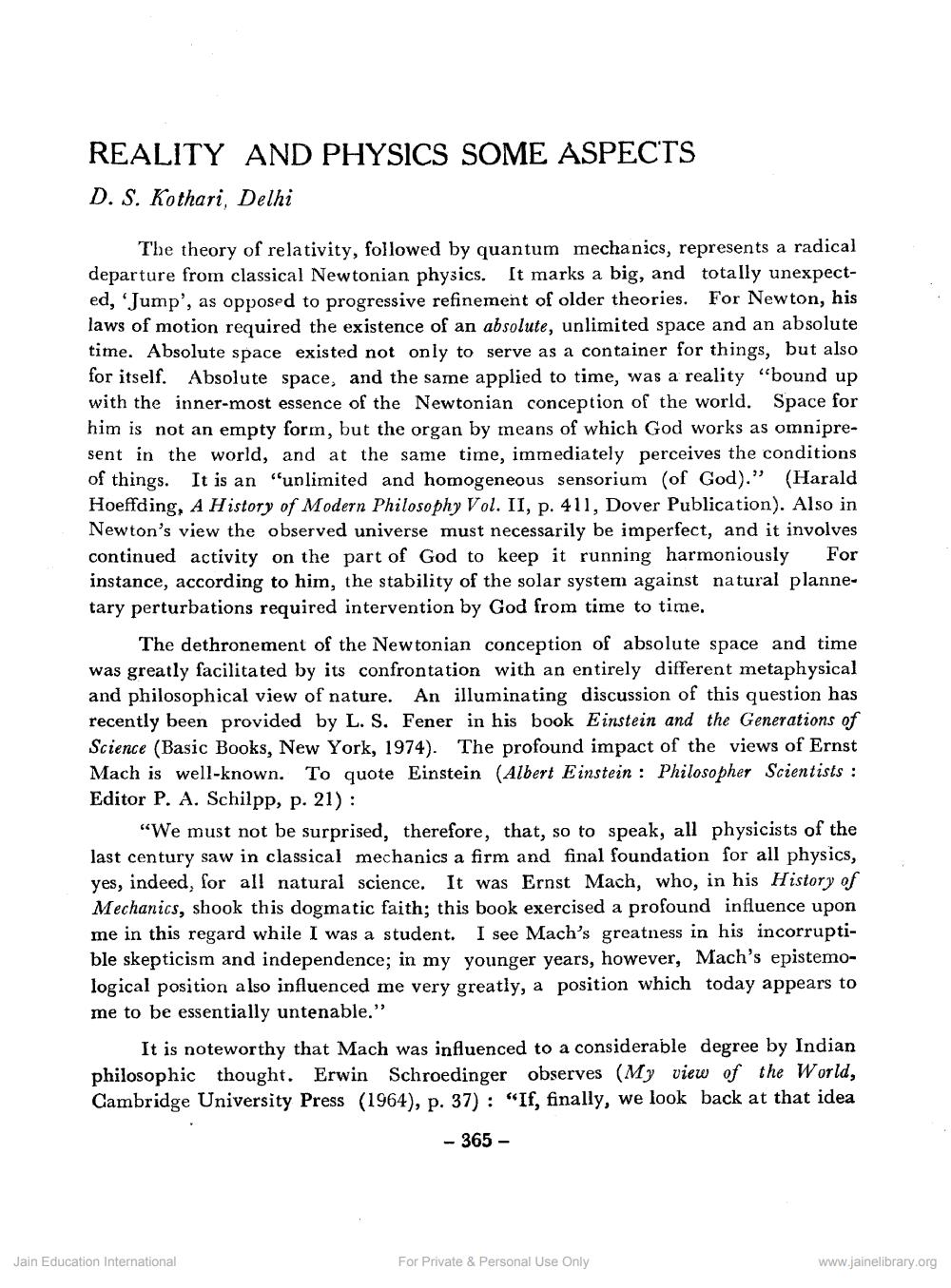Book Title: Reality and Physics Some Aspects Author(s): D S Kothari Publisher: Z_Kailashchandra_Shastri_Abhinandan_Granth_012048.pdf View full book textPage 1
________________ REALITY AND PHYSICS SOME ASPECTS D. S. Kothari, Delhi The theory of relativity, followed by quantum mechanics, represents a radical departure from classical Newtonian physics. It marks a big, and totally unexpected, 'Jump', as opposed to progressive refinement of older theories. For Newton, his laws of motion required the existence of an absolute, unlimited space and an absolute time. Absolute space existed not only to serve as a container for things, but also for itself. Absolute space, and the same applied to time, was a reality "bound up. with the inner-most essence of the Newtonian conception of the world. Space for him is not an empty form, but the organ by means of which God works as omnipresent in the world, and at the same time, immediately perceives the conditions of things. It is an "unlimited and homogeneous sensorium (of God)." (Harald Hoeffding, A History of Modern Philosophy Vol. II, p. 411, Dover Publication). Also in Newton's view the observed universe must necessarily be imperfect, and it involves continued activity on the part of God to keep it running harmoniously For instance, according to him, the stability of the solar system against natural plannetary perturbations required intervention by God from time to time. The dethronement of the Newtonian conception of absolute space and time was greatly facilitated by its confrontation with an entirely different metaphysical and philosophical view of nature. An illuminating discussion of this question has recently been provided by L. S. Fener in his book Einstein and the Generations of Science (Basic Books, New York, 1974). The profound impact of the views of Ernst Mach is well-known. To quote Einstein (Albert Einstein: Philosopher Scientists: Editor P. A. Schilpp, p. 21): "We must not be surprised, therefore, that, so to speak, all physicists of the last century saw in classical mechanics a firm and final foundation for all physics, yes, indeed, for all natural science. It was Ernst Mach, who, in his History of Mechanics, shook this dogmatic faith; this book exercised a profound influence upon me in this regard while I was a student. I see Mach's greatness in his incorruptible skepticism and independence; in my younger years, however, Mach's epistemological position also influenced me very greatly, a position which today appears to me to be essentially untenable." It is noteworthy that Mach was influenced to a considerable degree by Indian philosophic thought. Erwin Schroedinger observes (My view of the World, Cambridge University Press (1964), p. 37): "If, finally, we look back at that idea - 365 - Jain Education International For Private & Personal Use Only www.jainelibrary.orgPage Navigation
1 2 3 4 5 6 7 8 9 10
